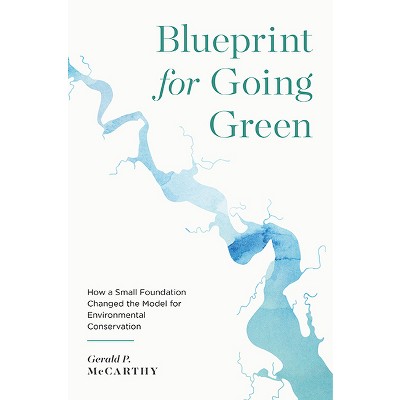Cutting the Vines of the Past - by Tamara Giles-Vernick (Paperback)

About this item
Highlights
- Cutting the Vines of the Past offers a novel argument: African ways of seeing and interpreting their environments and past are not only critical to how historians write environmental history; they also have important lessons for policymakers and conservationists.
- About the Author: Tamara Giles-Vernick is Assistant Professor of History at the City University of New York, Baruch College, and the author of prize-winning articles on ethnohistory and environmental history.
- 203 Pages
- Nature, Environmental Conservation & Protection
Description
About the Book
By examining Africans' environmental and historical ways of seeing and knowing, and by revealing how these have changed, Giles-Vernick offers a fresh perspective on the writing of environmental history.Book Synopsis
Cutting the Vines of the Past offers a novel argument: African ways of seeing and interpreting their environments and past are not only critical to how historians write environmental history; they also have important lessons for policymakers and conservationists. Tamara Giles-Vernick demonstrates how various outsiders intervening in African land-use practices have repeatedly met failure because of their inability or unwillingness to understand how Africans see their land and their pasts.
Giles-Vernick takes as her focus doli, the environmental and historical perceptions and knowledge of the Mpiemu people in the Central African Republic. She argues that Mpiemu opposition to a modern environmental conservation project--the Dzanga-Ndoki National Park and the Dzanga-Sangha Special Reserve--derives from the people's interpretations of their past experiences with environmental interventions imposed by concessionary companies, colonial officials, other Africans, Christian missionaries, and the postcolonial state. At the same time, Mpiemu people associate these contemporary conservationists with the bosses and Christian missionaries of the colonial past, viewing them as sources of jobs, consumer goods, and other support.
Giles-Vernick's argument will interest conservationists and policymakers as well as environmental historians. By examining Africans' environmental and historical ways of seeing and knowing, and by revealing how these have changed, Giles-Vernick offers a fresh perspective on the writing of environmental history.
Review Quotes
"This is an important, substantial, and innovative study of the intellectual and environmental history of the Mpiemu people. It has the potential to be a landmark study, one that will be widely cited in the future by African historians and likely by environmental, cultural, and developmental scholars as well.
--Phyllis Martin, Indiana University, coeditor of History of Central Africa: The Contemporary Years since 1960Cutting the Vines of the Past makes a substantial contribution to African environmental history, conservation history, and the history of environmental interventions in Africa. Giles-Vernick's scholarship is outstanding, the documentation of her sources is meticulous, and her command of the relevant literature is impressive.
--Roderick Neumann, Florida International University, author of Imposing Wilderness: Struggles over Livelihood and Nature Preservation in AfricaAbout the Author
Tamara Giles-Vernick is Assistant Professor of History at the City University of New York, Baruch College, and the author of prize-winning articles on ethnohistory and environmental history.
Shipping details
Return details
Trending Poetry











